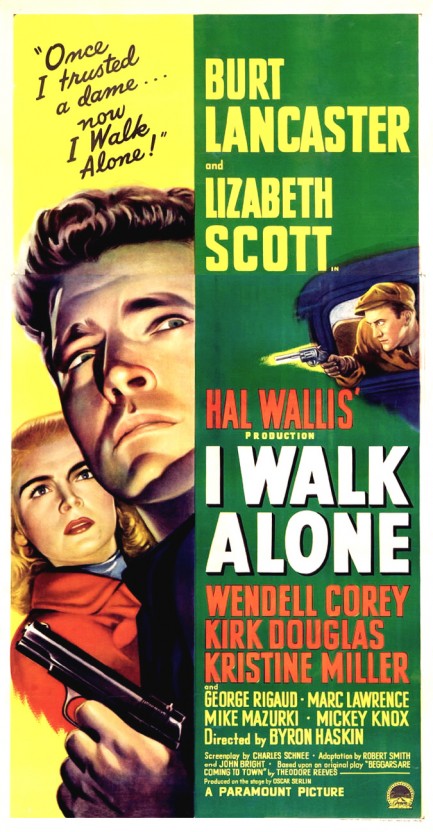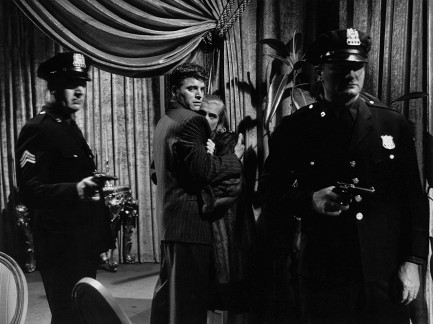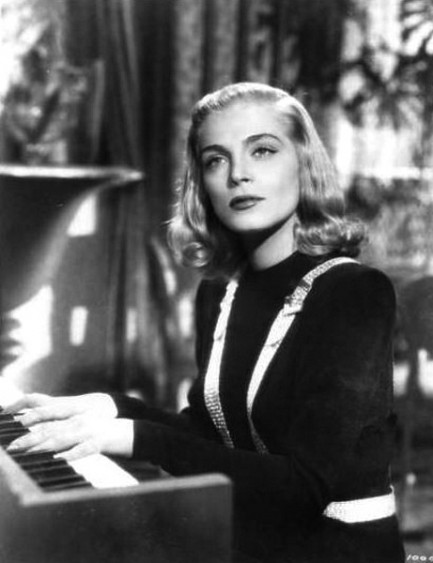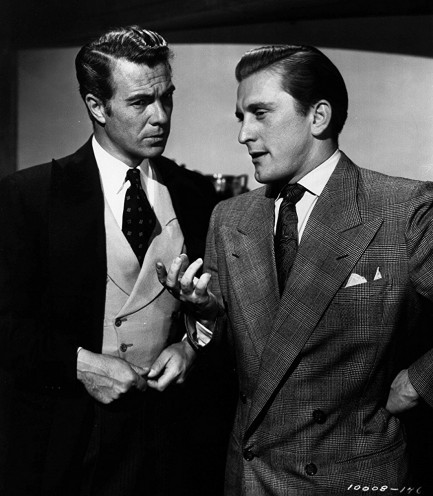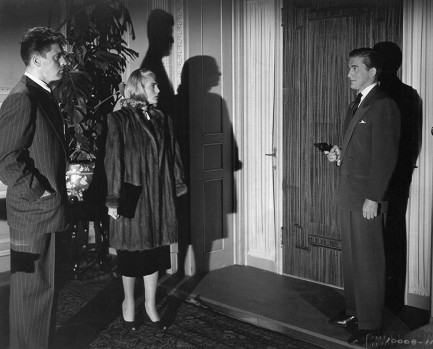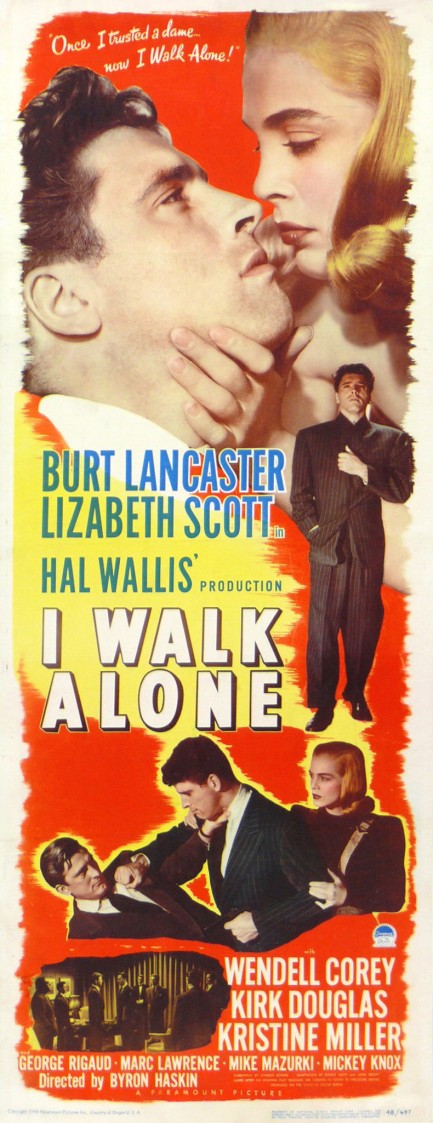| Musiquarium | Apr 30 2024 |



| Hollywoodland | Mar 21 2024 |

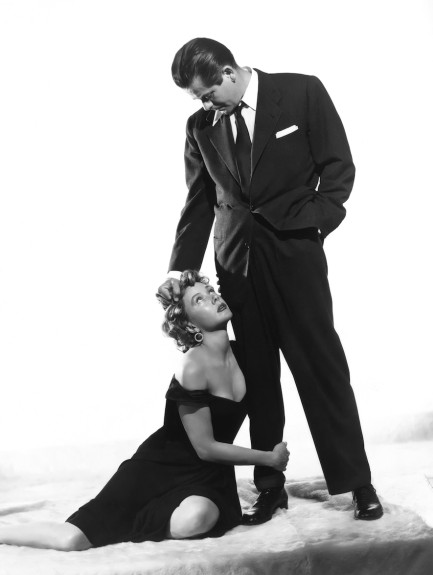
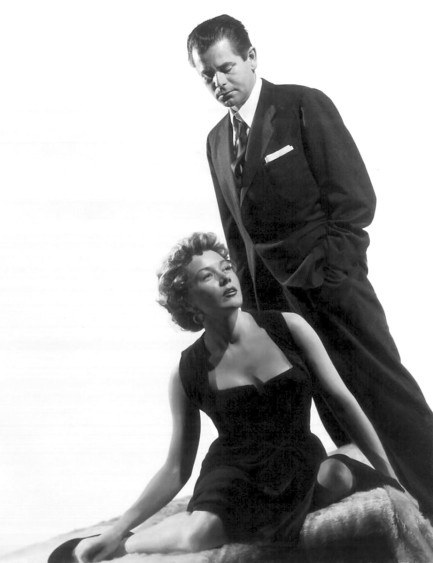
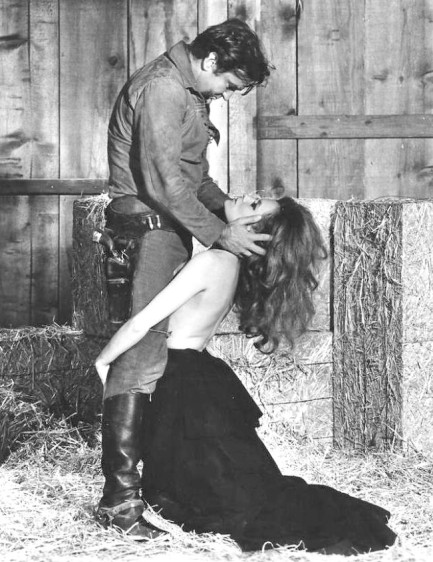
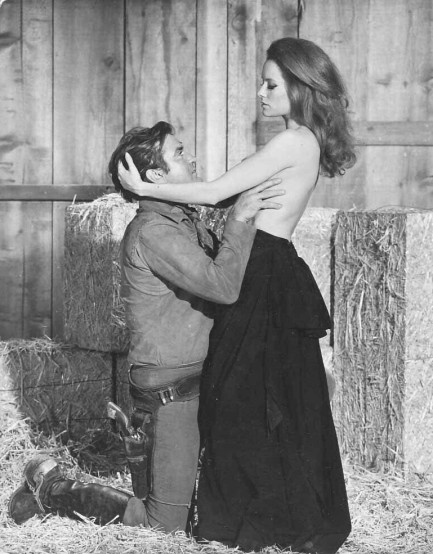 Rod Taylor and Luciana Pauluzzi swap subordinate positions for 1967's Chuka.
Rod Taylor and Luciana Pauluzzi swap subordinate positions for 1967's Chuka.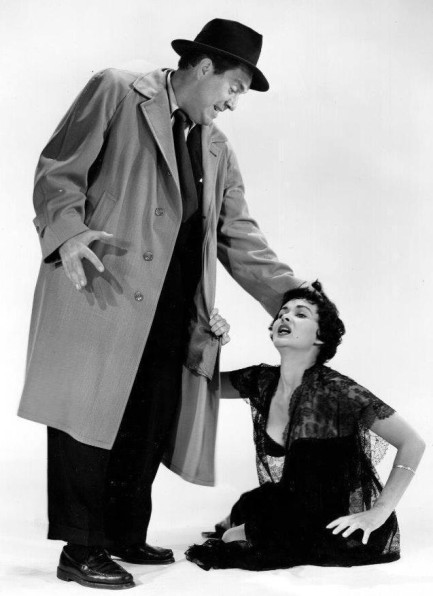 Edmund O'Brien goes for the time honored hair grab on Marla English for 1954's Shield for Murder.
Edmund O'Brien goes for the time honored hair grab on Marla English for 1954's Shield for Murder.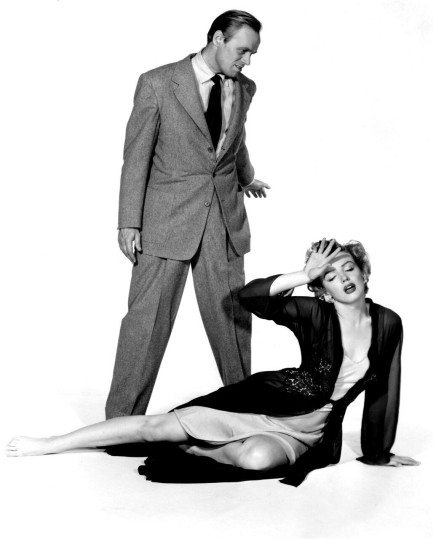 Marilyn Monroe swoons as Richard Widmark snarls for Don't Bother To Knock, 1952.
Marilyn Monroe swoons as Richard Widmark snarls for Don't Bother To Knock, 1952.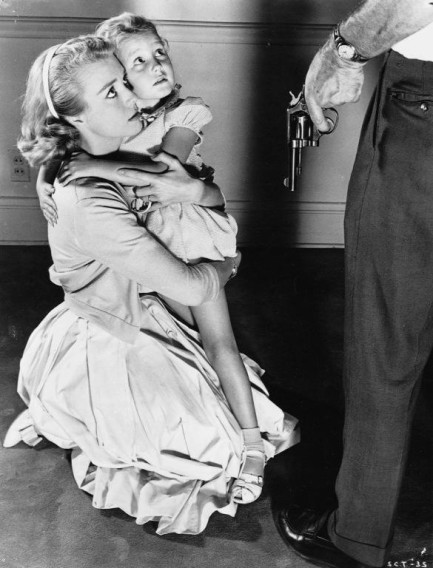 Inger Stevens and Terry Ann Ross for Cry Terror, an adaptation of a novel we talked about a few years ago.
Inger Stevens and Terry Ann Ross for Cry Terror, an adaptation of a novel we talked about a few years ago.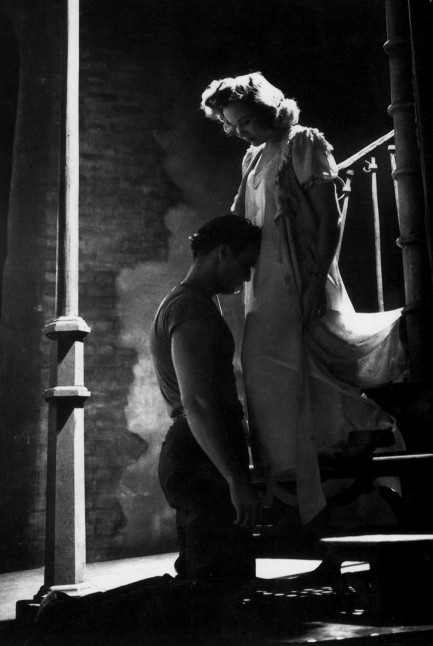 Kim Hunter soothes an overheated Marlon Brando in a promo for 1951's A Streetcar Named Desire.
Kim Hunter soothes an overheated Marlon Brando in a promo for 1951's A Streetcar Named Desire.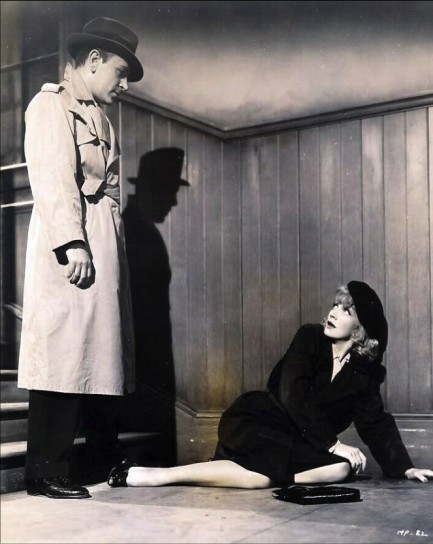 George Raft menaces Marlene Dietrich in the 1941 comedy Manpower.
George Raft menaces Marlene Dietrich in the 1941 comedy Manpower.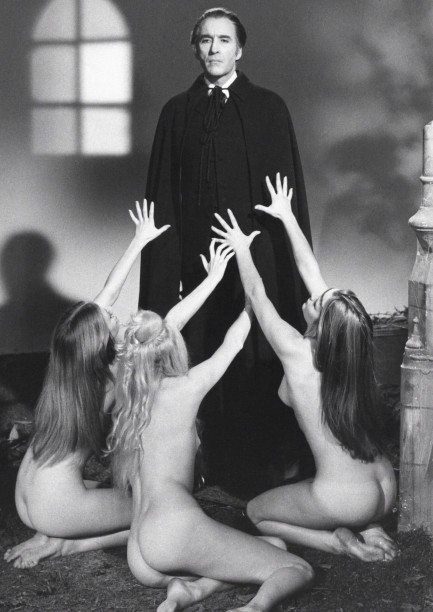
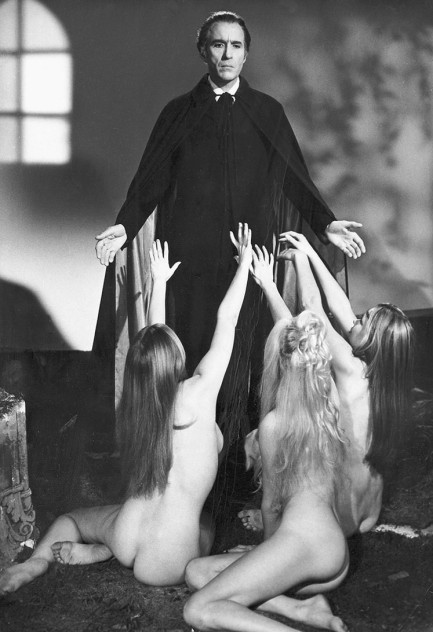 As promos go, these actually make sense. They show three unidentified models mesmerized by vampire Christopher Lee for 1970's Taste the Blood of Dracula.
As promos go, these actually make sense. They show three unidentified models mesmerized by vampire Christopher Lee for 1970's Taste the Blood of Dracula. Glenn Ford is at it again, this time looming over Rita Hayworth for the 1946 classic Gilda.
Glenn Ford is at it again, this time looming over Rita Hayworth for the 1946 classic Gilda.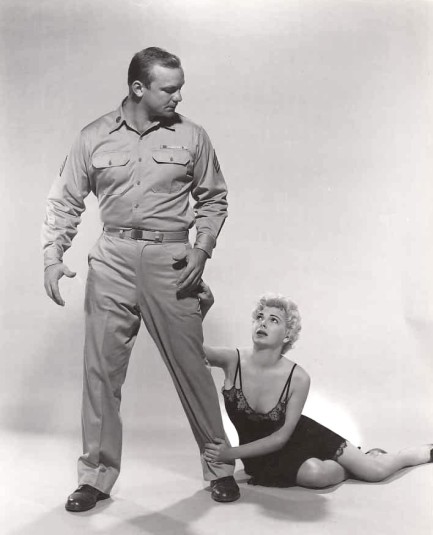 Aldo Ray and Barbara Nichols for 1958's The Naked and the Dead.
Aldo Ray and Barbara Nichols for 1958's The Naked and the Dead.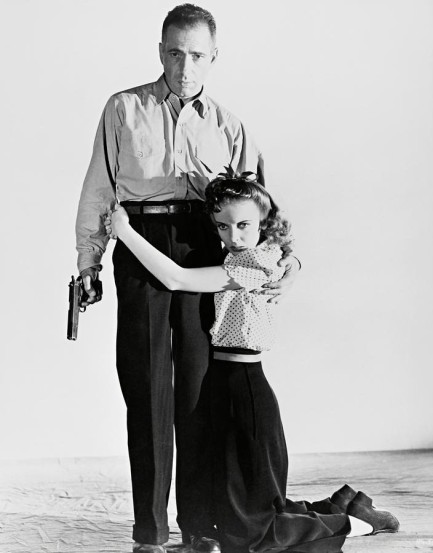 This one shows less domination and more protectiveness, as Humphrey Bogart prepares to defend Ida Lupino for High Sierra, 1941.
This one shows less domination and more protectiveness, as Humphrey Bogart prepares to defend Ida Lupino for High Sierra, 1941.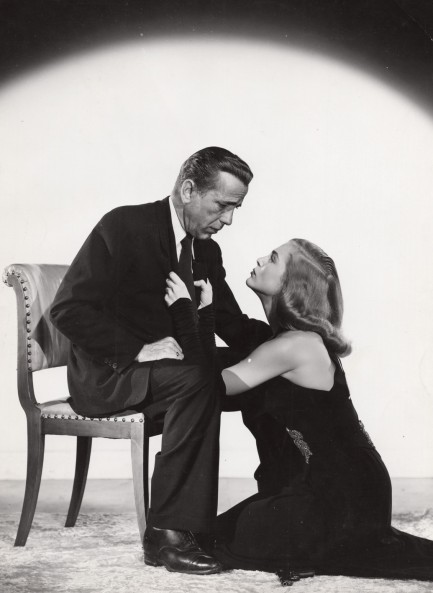 Humphrey once more. Here he's with Lizabeth Scott for Dead Reckoning, 1947.
Humphrey once more. Here he's with Lizabeth Scott for Dead Reckoning, 1947.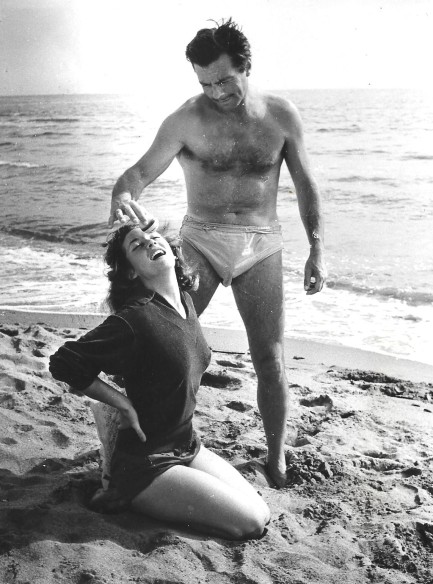 This shot shows Brazilian actress Fiorella Mari with an actor we can't identify in a movie we also can't identify.
This shot shows Brazilian actress Fiorella Mari with an actor we can't identify in a movie we also can't identify.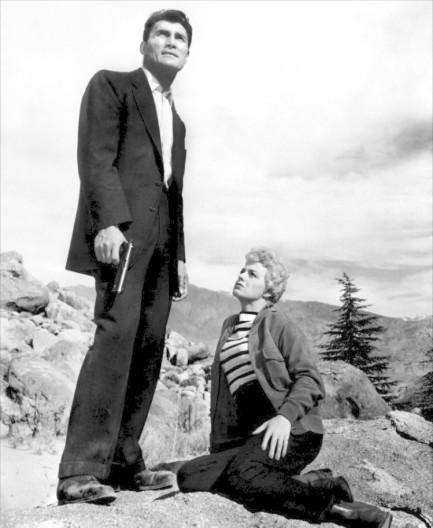 Shelly Winters and Jack Palance climb the highest mountain together for I Died a Thousand Times, 1955.
Shelly Winters and Jack Palance climb the highest mountain together for I Died a Thousand Times, 1955.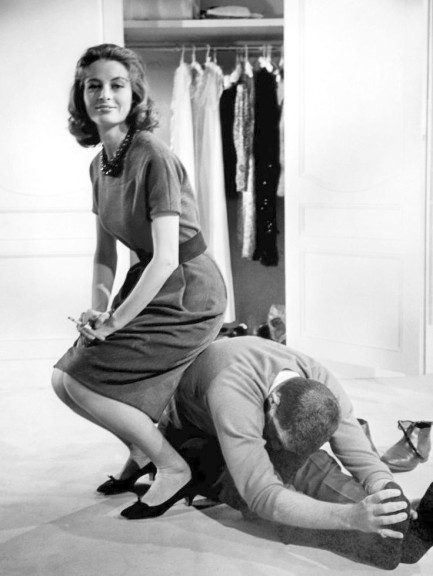 As we said, we didn't find as many examples of kneeling men, but we found this gem—Cappucine makes a seat of director Blake Edwards on the set of The Pink Panther in 1963. Does this count, though? While Edwards is subordinate, he isn't kneeling and it really isn’t a legit promo.
As we said, we didn't find as many examples of kneeling men, but we found this gem—Cappucine makes a seat of director Blake Edwards on the set of The Pink Panther in 1963. Does this count, though? While Edwards is subordinate, he isn't kneeling and it really isn’t a legit promo.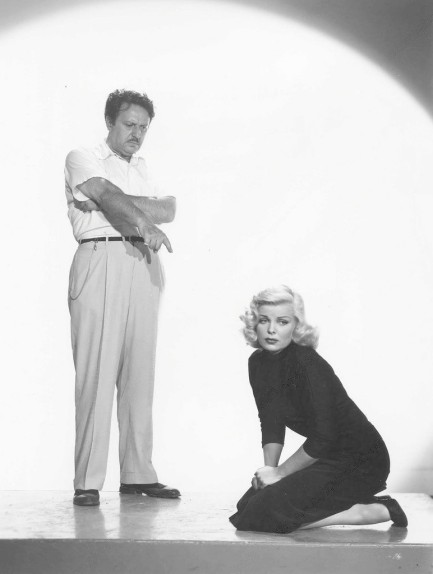 And lastly, in a curious example, Hugo Haas seems to tell Cleo Moore to stay in a shot made for 1953's One Girl's Confession.
And lastly, in a curious example, Hugo Haas seems to tell Cleo Moore to stay in a shot made for 1953's One Girl's Confession.
| Femmes Fatales | Dec 22 2023 |

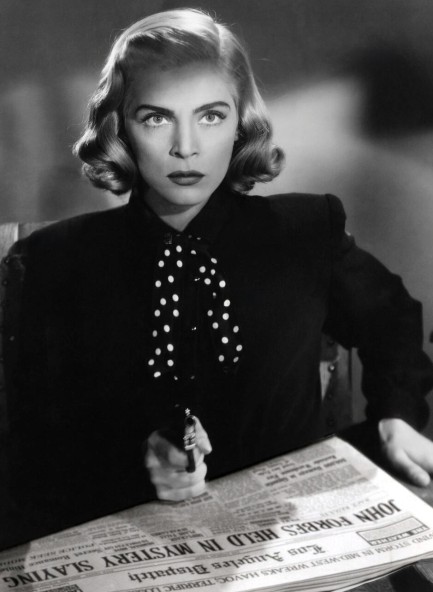
Above: Lizabeth Scott looking like she means serious business in a promo photo made for her 1948 film noir Pitfall. Scott was an a-list actress and a noir stalwart, so her movies are usually safe bets. Pitfall isn't her best, but it's certainly worth watching.
| Femmes Fatales | Nov 23 2023 |

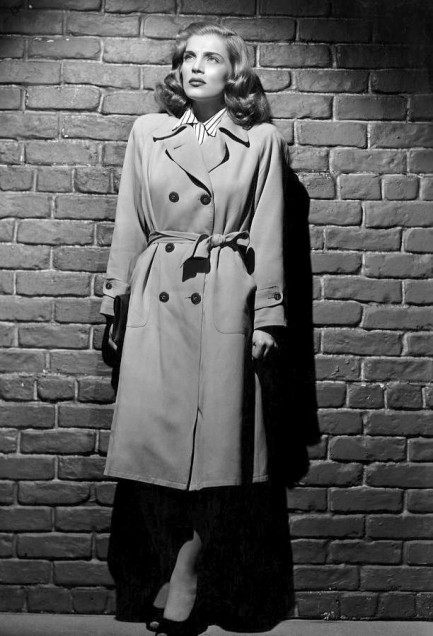
Lizabeth Scott, who you see above, has an outsize legacy in film history thanks to her appearances in several film noir landmarks: Dead Reckoning, I Walk Alone, Pitfall, and Too Late for Tears come to mind. She also appeared in Dark City, Paid in Full, The Racket, the bizarre British noir-adjacent melodrama Stolen Face, and others. The above promo image was made when she appeared in one of her best movies—the Barbara Stanwyck headlined film noir The Strange Love of Martha Ivers, from 1946.
| Vintage Pulp | Aug 24 2022 |

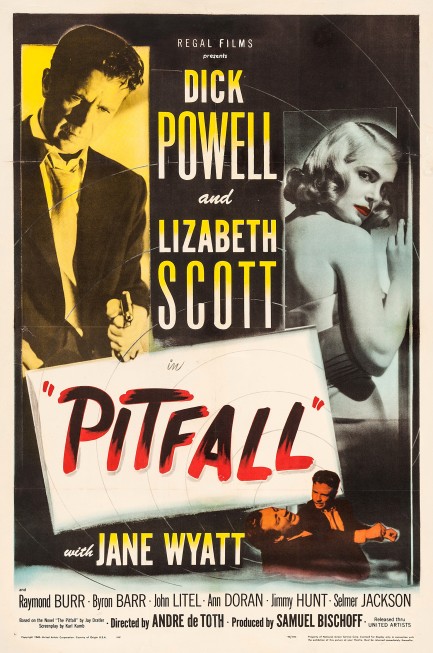
A long while back we talked about the 1948 thriller Pitfall and shared a rare insert poster. Today we're showing you the standard size, usually referred to as a one sheet. Pitfall is worth a watch for a couple of reasons, but mainly because Dick Powell is a very watchable star. When we began this website, back when he was new to us, we called him “solid.” All these years later we now think of him as one of the better stars of his era.
| Intl. Notebook | Nov 17 2021 |

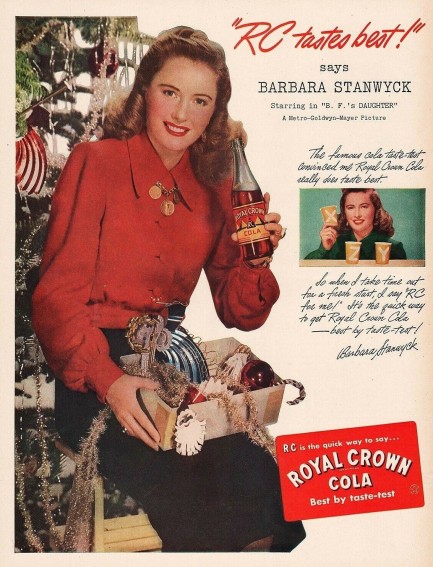
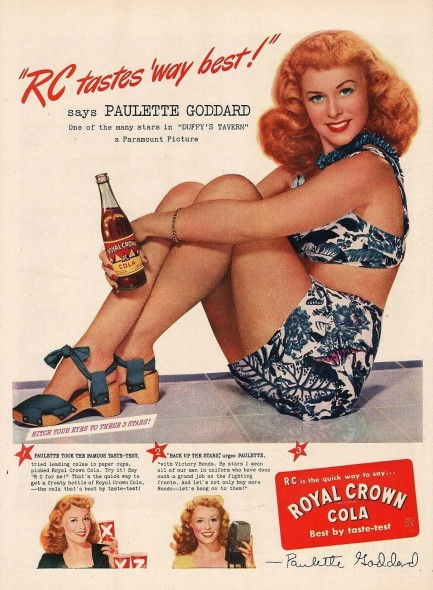
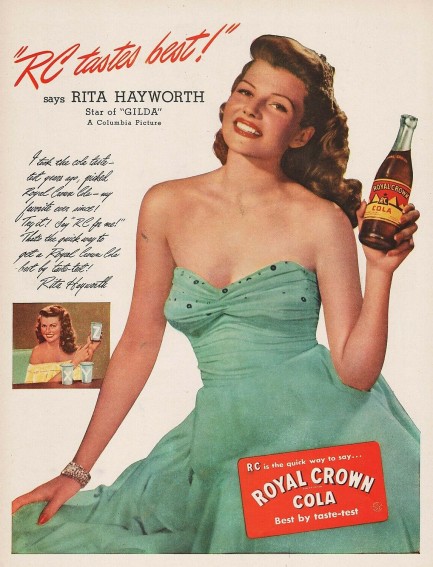
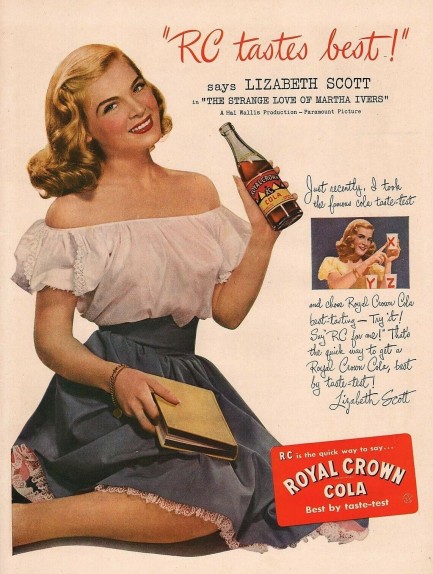
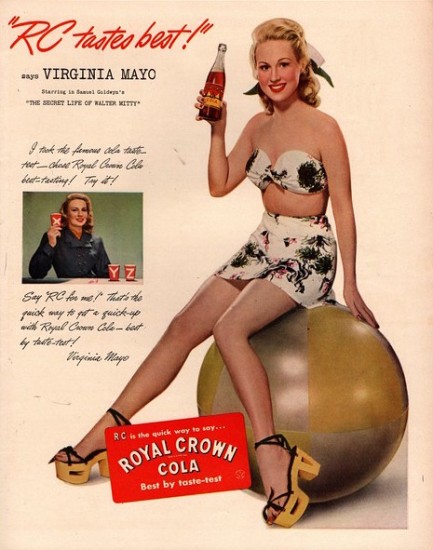
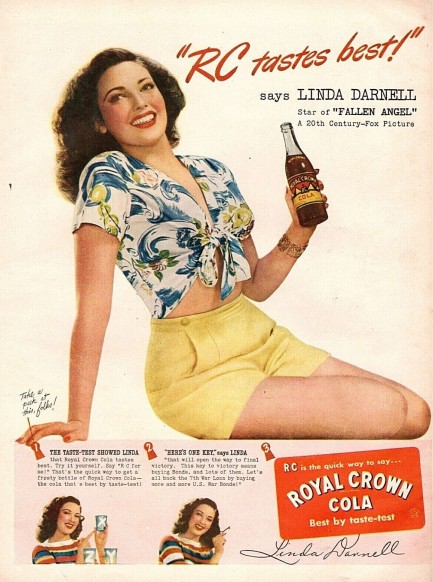
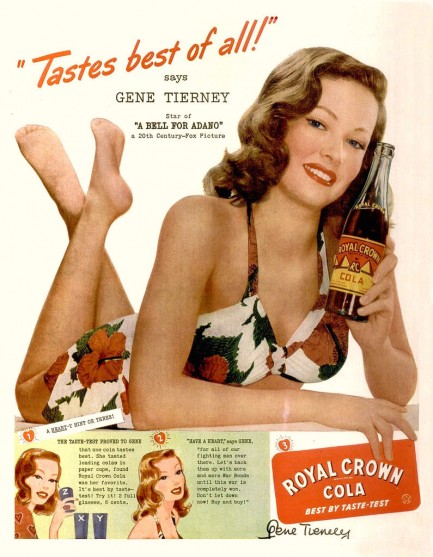
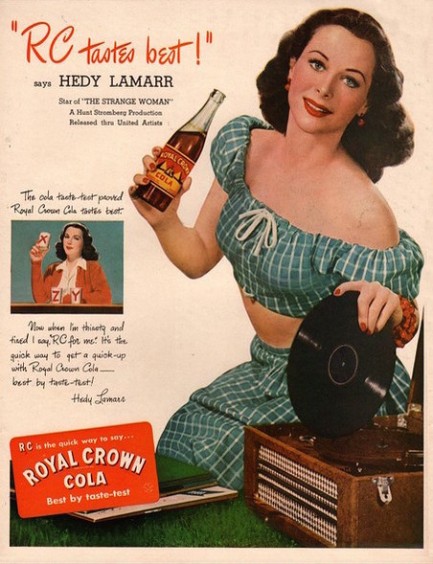
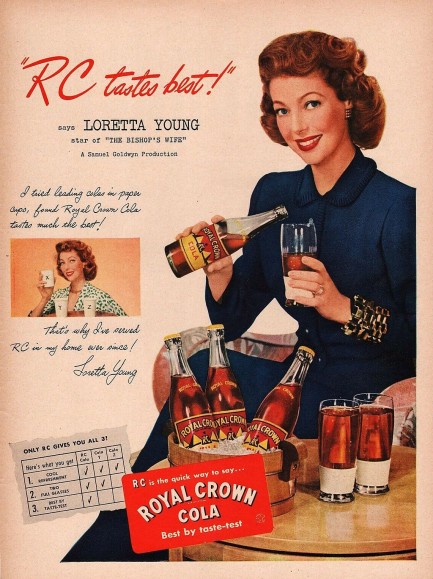
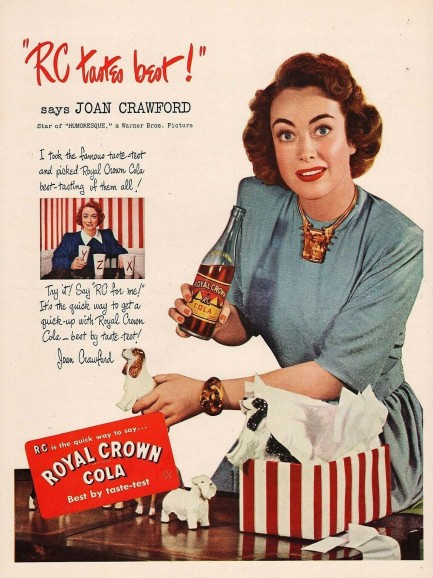
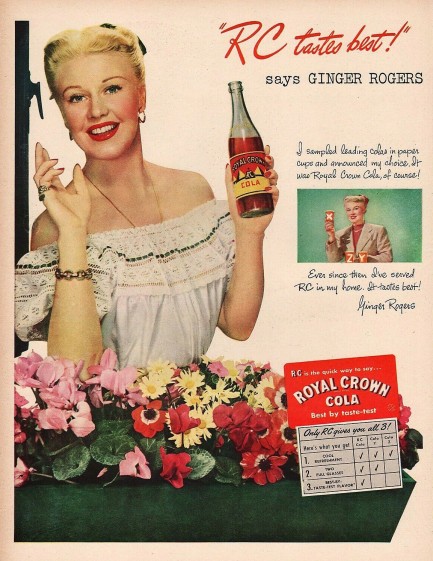
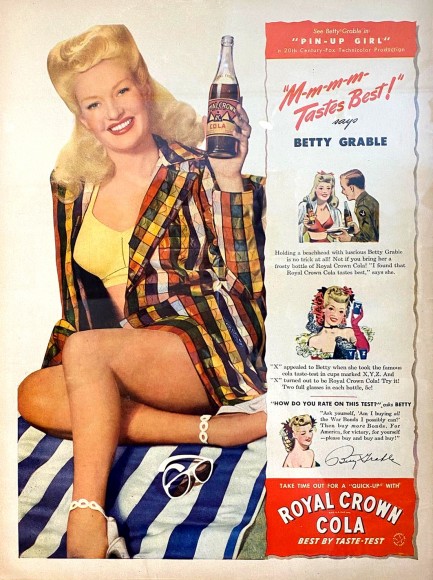
Not long ago we showed you a few Royal Crown Cola print ads featuring Hollywood superstar Lauren Bacall, and mentioned that other celebs had also pitched the brand. That was an understatement. In its efforts to claw away part of Coca Cola's dominant market share, RC signed up an entire stable of top stars, including a-list personalities such as Barbara Stanwyck, Joan Crawford, and Gene Tierney. Above you see a dozen celebrity ads produced by RC. There were others we left out of the group, for example with Sonja Henie, Irene Dunne, Diana Lynn, and even Bing Crosby. But how much cola can you really stand? Twelve is enough for one day.
| Vintage Pulp | Jan 18 2020 |

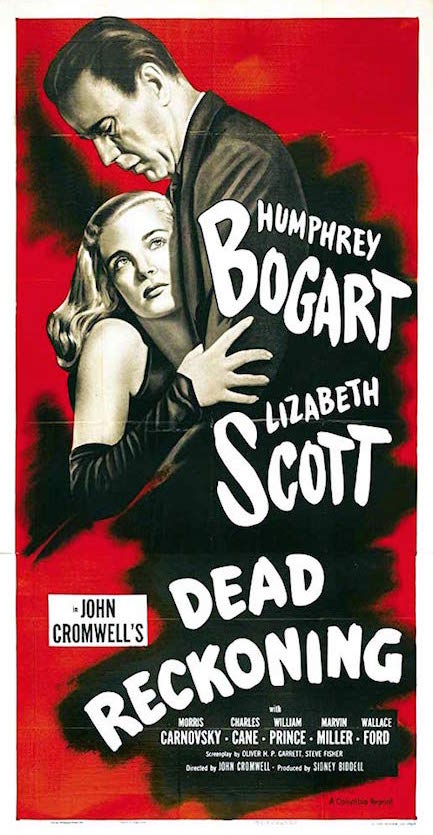
This promo poster for Dead Reckoning is deliberately garish and highly effective at drawing the eye. They don't make 'em like this anymore, nor movies like this either. It had a special premiere today in 1947 in San Francisco, and went into wide release across the U.S. a month later. We shared a piece of Japanese promo art years ago and talked about the film, so if you want to know more, check here.
| Hollywoodland | Dec 8 2018 |


We have more photos in the same vein below. If you need help identifying the stars, their names are in our keywords in order of appearance. Looking at the entire collection, we tend to wonder if there were three or four bears that ended up in all the photos. You know, like bears owned by certain photography studios or prop departments. Just saying, a couple of them look suspiciously similar. But on the other hand, how different from each other do bears really look? You'll notice that the poor creatures were generally posed to look fierce. But by contrast Inger Stevens' bear, just below, strikes us as a bit reflective and melancholy, which is understandable. Elizabeth Montgomery, meanwhile, gets extra points for wearing her bear. We have twenty-plus images below, including another shot of Mansfield, sans Hargitay.
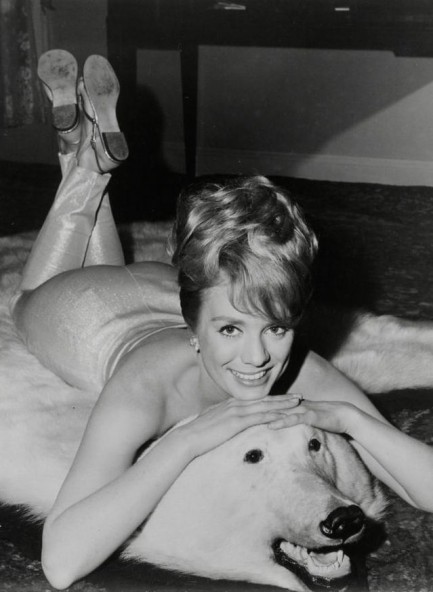
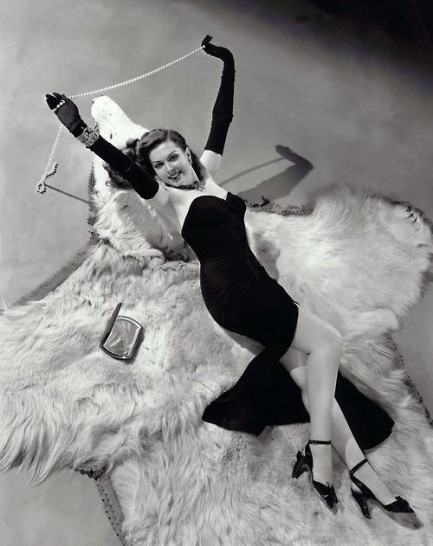
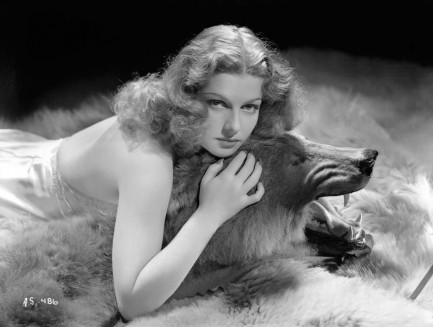
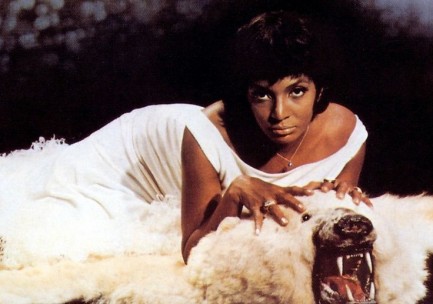
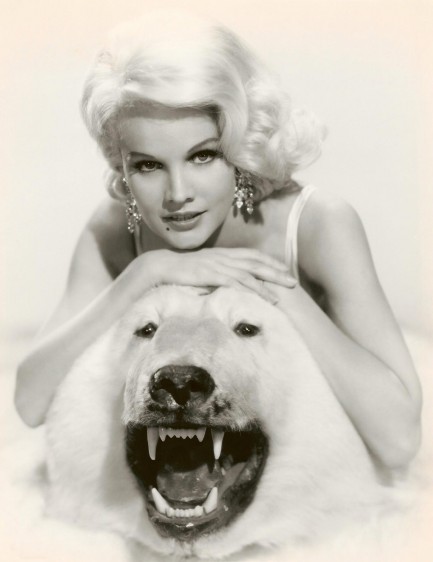
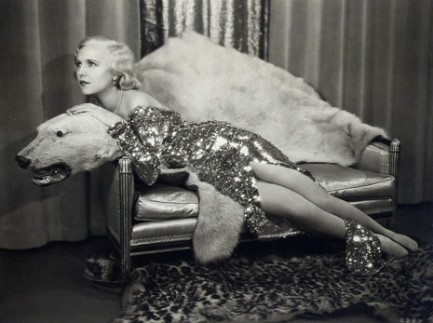
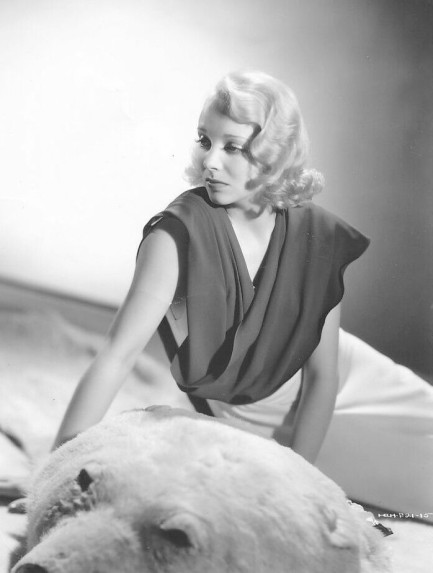
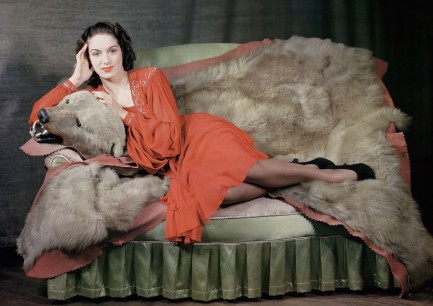
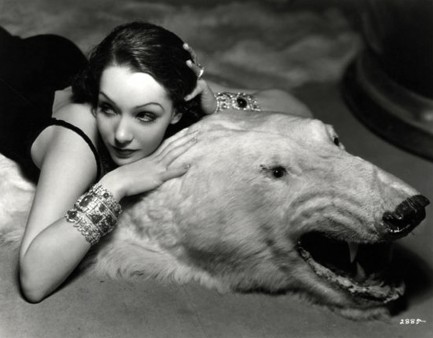
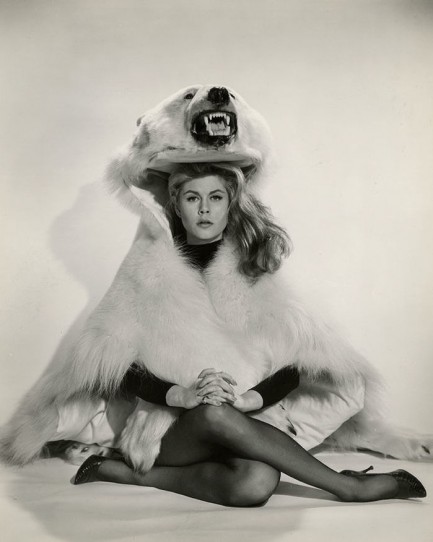
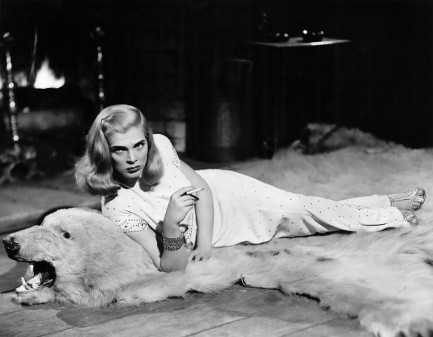
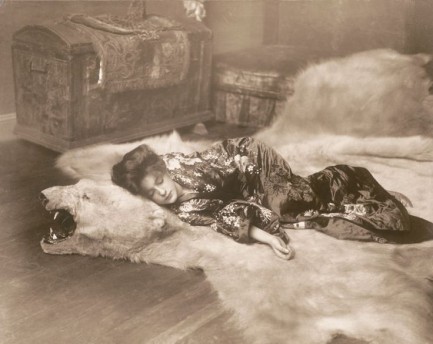
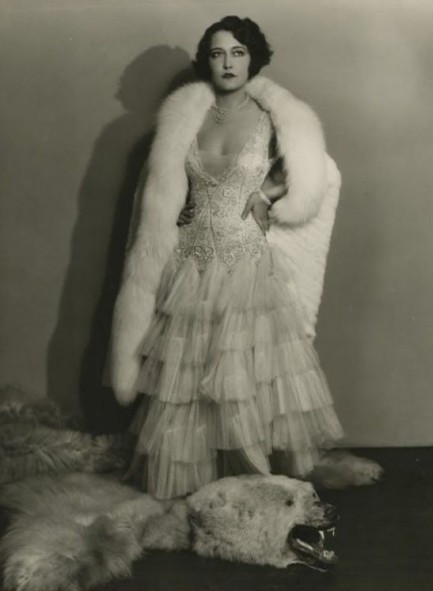
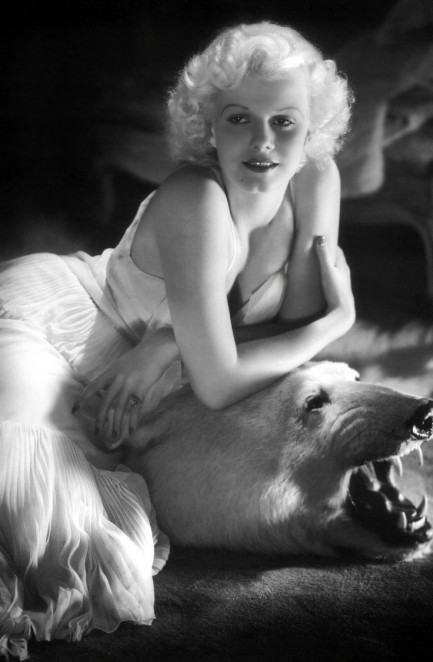
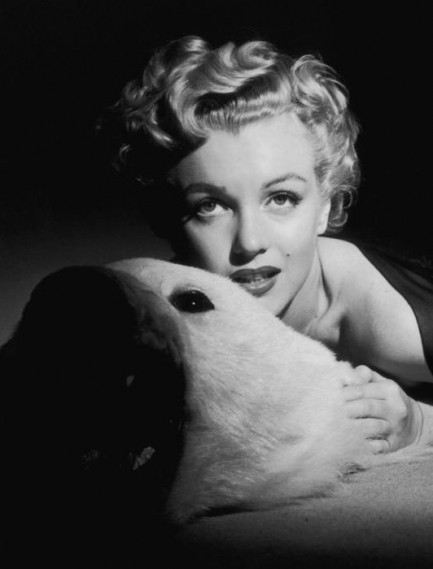
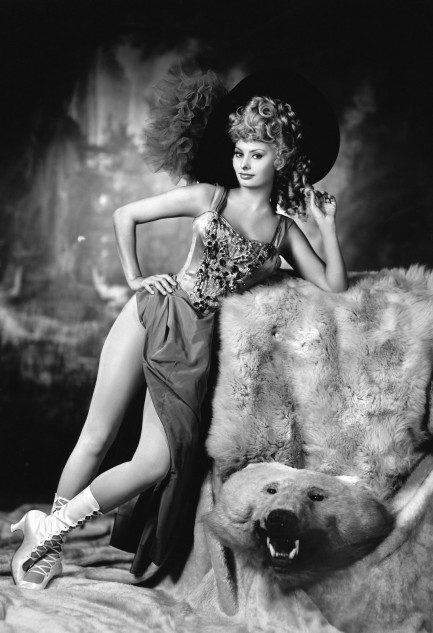
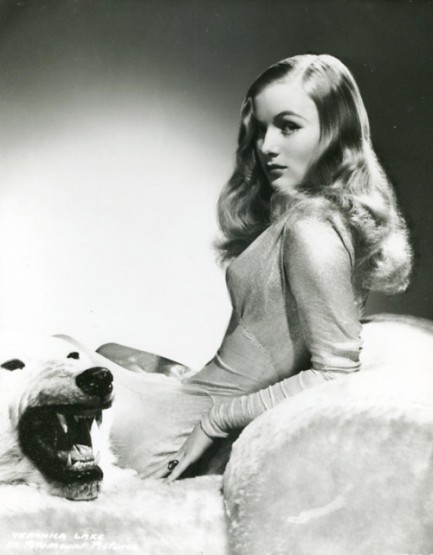
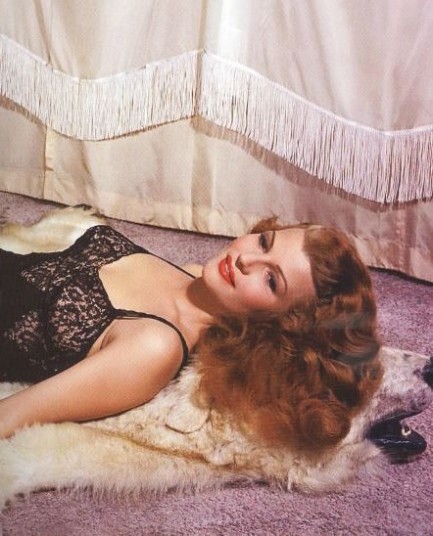
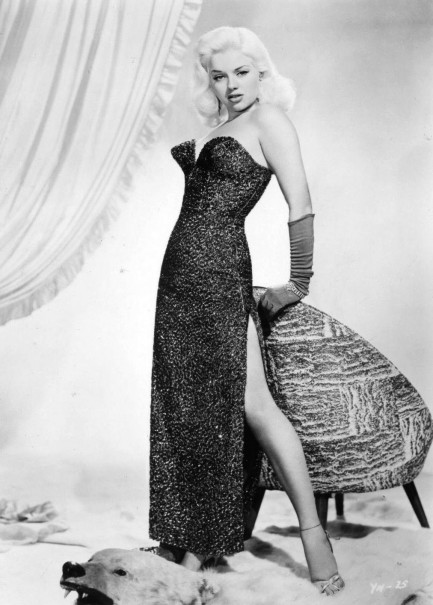
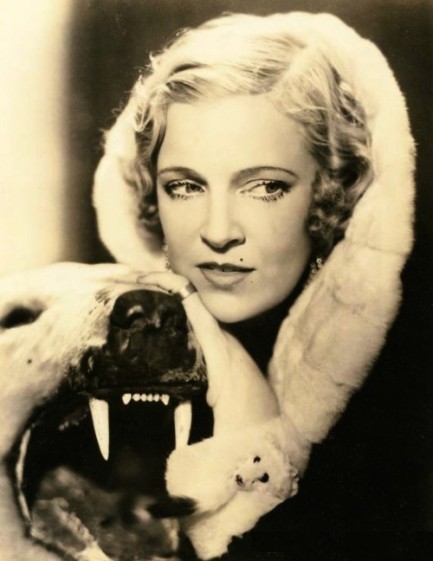
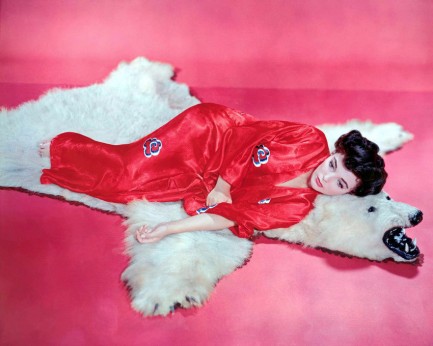
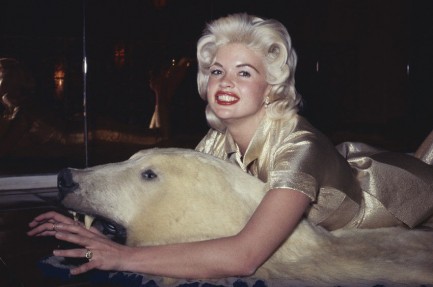
| Vintage Pulp | Jul 8 2018 |

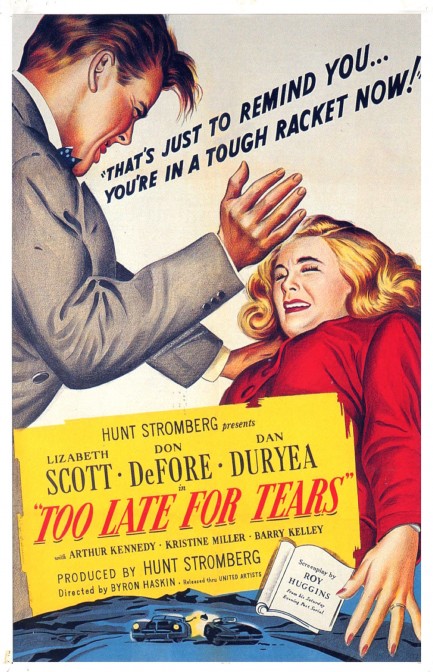
The promo poster is interesting. It shows bad guy Dan Duryea trying to make Lizabeth Scott tell him where the money went. But Scott's tough. She'll endure anything to keep the hundred grand. As an allegory about greed Too Late for Tears runs on a couple of tracks, but the way it suggests that the craving for money can make a woman forgive—or perhaps pretend to forgive—the unforgivable is a pretty potent commentary. Some viewers may find the very suggestion offensive, which is where thinking of the money as life preservers helps. What price wouldn't a rational person swimming in the ocean pay to guarantee that they would never drown? Too Late for Tears asks the question and the answer isn't pretty. It premiered in the U.S. today in 1949.
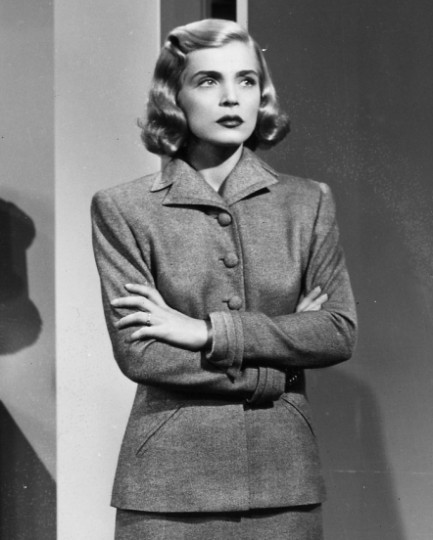
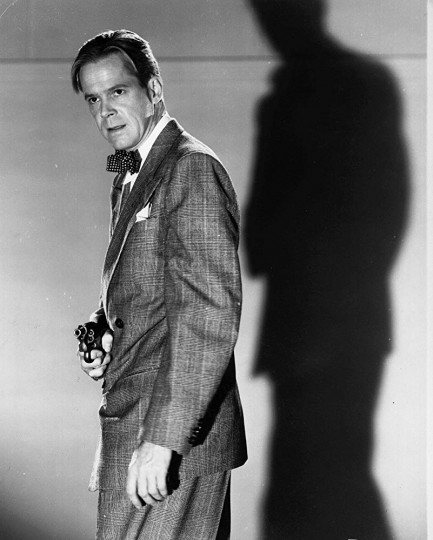
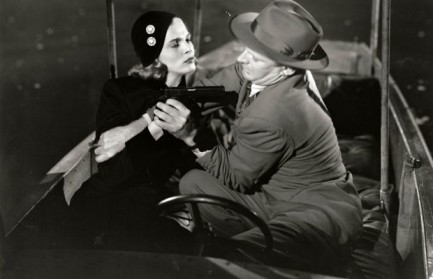
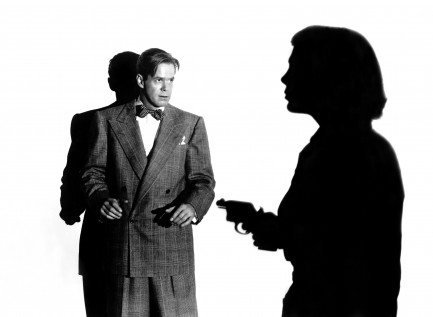
| Vintage Pulp | Feb 1 2018 |

